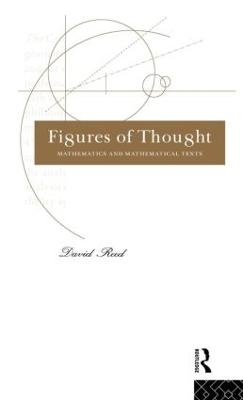
Figures of Thought
Mathematics and Mathematical Texts
Seiten
1994
Routledge (Verlag)
978-0-415-08146-7 (ISBN)
Routledge (Verlag)
978-0-415-08146-7 (ISBN)
Examines the ways in which mathematical works can be read as texts, examines their textual strategiesand demonstrates that such readings provide a rich source of philosophical debate regarding mathematics.
Rarely has the history or philosophy of mathematics been written about by mathematicians, and the analysis of mathematical texts themselves has been an area almost entirely unexplored. Figures of Thought looks at ways in which mathematical works can be read as texts, examines their textual strategies and demonstrates that such readings provide a rich source of philosophical issues regarding mathematics: issues which traditional approaches to the history and philosophy of mathematics have neglected.
David Reed, a professional mathematician himself, offers the first sustained and critical attempt to find a consistent argument or narrative thread in mathematical texts. In doing so he develops new and fascinating interpretations of mathematicians' work throughout history, from an in-depth analysis of Euclid's Elements, to the mathematics of Descartes and right up to the work of contemporary mathematicians such as Grothendeick. He also traces the implications of this approach to the understanding of the history and development of mathematics.
Rarely has the history or philosophy of mathematics been written about by mathematicians, and the analysis of mathematical texts themselves has been an area almost entirely unexplored. Figures of Thought looks at ways in which mathematical works can be read as texts, examines their textual strategies and demonstrates that such readings provide a rich source of philosophical issues regarding mathematics: issues which traditional approaches to the history and philosophy of mathematics have neglected.
David Reed, a professional mathematician himself, offers the first sustained and critical attempt to find a consistent argument or narrative thread in mathematical texts. In doing so he develops new and fascinating interpretations of mathematicians' work throughout history, from an in-depth analysis of Euclid's Elements, to the mathematics of Descartes and right up to the work of contemporary mathematicians such as Grothendeick. He also traces the implications of this approach to the understanding of the history and development of mathematics.
Reed, David
Preface Introduction Part I: The Subject Matter of Geometry in Euclid, Descartes and Hilbert 1. The Opening of The Elements 2. Propositions and Proofs - Theorems and Problems Part II 1. The Contexts of Measurement 2. Number Theory in the 19th Century Appendix Part III Introduction 1. Types of Wholes 2. Generality in Contemporary Mathematics Conclusion
| Erscheint lt. Verlag | 1.12.1994 |
|---|---|
| Verlagsort | London |
| Sprache | englisch |
| Maße | 138 x 216 mm |
| Gewicht | 362 g |
| Themenwelt | Geisteswissenschaften ► Philosophie |
| Mathematik / Informatik ► Mathematik | |
| Naturwissenschaften | |
| ISBN-10 | 0-415-08146-7 / 0415081467 |
| ISBN-13 | 978-0-415-08146-7 / 9780415081467 |
| Zustand | Neuware |
| Haben Sie eine Frage zum Produkt? |
Mehr entdecken
aus dem Bereich
aus dem Bereich
wie Philosophie uns helfen kann, unseren Weg zu finden
Buch | Hardcover (2023)
dtv Verlagsgesellschaft
CHF 39,90
wie Hoffnung politisch wird
Buch | Softcover (2023)
Philipp Reclam (Verlag)
CHF 9,80


